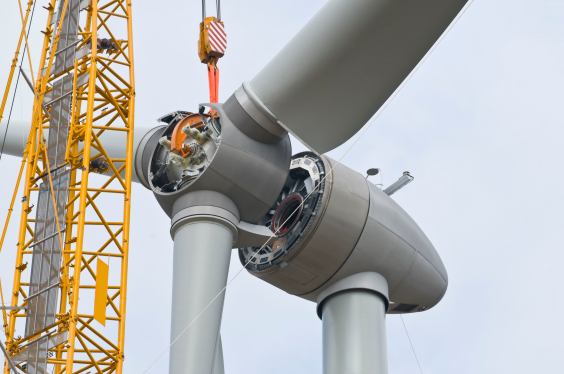Introduction
Nuclear power may have garnered significant attention from tech-driven industries over the past few months, but the spotlight has shifted toward other energy sources with the rise of artificial intelligence (AI) ambitions. Among the most notable players in this space is Google, which has been increasingly focusing on renewable energy and advanced battery storage systems to bolster its data centers. In a landmark deal announced recently, Google has teamed up with partners to finance a massive gigawatt-scale project aimed at providing carbon-free power for several of its data centers.
A $20 Billion Deal for Carbon-Free Power
Google recently finalized a groundbreaking agreement with renewable energy developer Intersect Power and investment firm TPG Rise Climate. The deal is designed to provide enough clean power to fuel multiple gigawatt-scale data centers, marking a significant step forward in the company’s quest to integrate renewable energy into its infrastructure.
The total investment for this project stands at approximately $20 billion, with Intersect Power already securing funding for its first phase of the project. TPG Rise Climate is leading the equity investment, while Google and other major players are contributing their own expertise and resources. This move underscores Google’s commitment to advancing its AI capabilities and reducing reliance on traditional energy sources.
The Deal Includes Significant Financial Commitments
In addition to providing the necessary funding for renewable power generation, the agreement also includes an $800 million equity investment in Intersect Power. This investment is expected to accelerate the development and deployment of green energy technologies, ensuring that Google can meet its ambitious sustainability goals.
The Future of AI-Driven Data Centers
As tech companies like Google continue to push forward with their AI initiatives, they face a critical challenge: scaling up renewable energy infrastructure to match the demands of their growing data centers. This is where renewable energy storage systems come into play. By integrating advanced battery technologies and decentralized power generation systems, companies can ensure a reliable and sustainable energy supply for their operations.
Comparisons with Other Energy Initiatives
The Google deal stands out among other recent energy-related initiatives by its scale and ambition. For instance, Microsoft has been actively exploring the potential of Three Mile Island, a project that combines solar power with nuclear technology to address energy storage challenges. Similarly, Amazon is making strides in the renewable energy space through its Sage Testbed, an initiative focused on advanced battery storage systems.
While these efforts share common goals, they differ in scope and execution. Google’s $20 billion investment represents a significant commitment compared to the more modest scale of projects like those undertaken by Microsoft and Amazon. However, it is clear that these companies are all converging on similar objectives: leveraging AI and renewable energy to create a sustainable future.
Challenges Ahead
Despite its ambitious plans, Google faces a number of challenges in realizing this vision. One major obstacle is the need for advanced battery technologies that can match or exceed current performance levels while maintaining affordability and reliability. Without breakthroughs in this area, scaling up renewable energy infrastructure may prove to be an insurmountable barrier.
Additionally, the company must navigate complex regulatory landscapes to ensure compliance with environmental and energy conservation standards. The integration of renewable energy into existing power grids requires careful planning and coordination to avoid disruptions and minimize costs.
Timelines and Progress Updates
While specific timelines for the deployment of these projects are not yet publicly available, Google has already made significant progress in the early stages of development. Preliminary testing of advanced battery technologies is underway, with promising results expected within the next few months. Once these technologies reach full scale, they will enable the company to achieve its ambitious sustainability goals.
Conclusion
Google’s focus on AI and renewable energy represents a paradigm shift in the tech industry, with far-reaching implications for how we view energy generation and consumption. By investing heavily in carbon-free power and advanced battery storage systems, the company is laying the foundation for a future where AI-driven technologies and sustainable energy sources converge to create a more efficient and environmentally friendly energy landscape.
As this story unfolds, it will be fascinating to watch how other major tech companies follow Google’s lead in pursuing similar initiatives. Whether through partnerships like Intersect Power or groundbreaking projects such as Three Mile Island, the industry is expected to witness a surge in innovation aimed at addressing some of its most pressing challenges.
References
For more information on this topic, you can visit the following sources:
- Google’s AI and Renewable Energy Initiative
- Intersect Power’s Renewables Division
- TPG Rise Climate’s Sustainability Initiatives
This article was written by Tim De Chant, a leading expert in the field of renewable energy and AI-driven technologies. For more information on this topic, please visit his website or follow him on social media for updates and insights into the latest developments in tech and sustainability.
